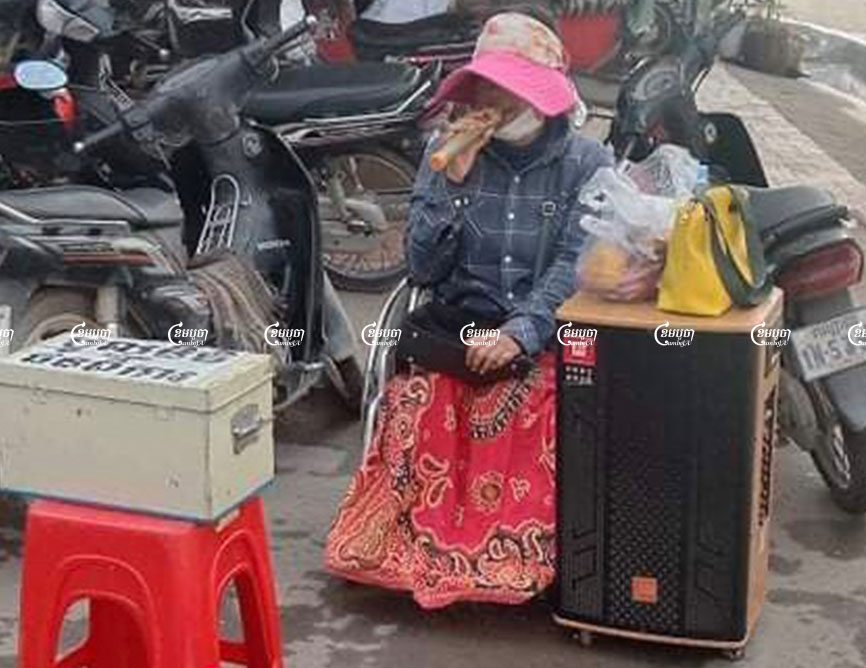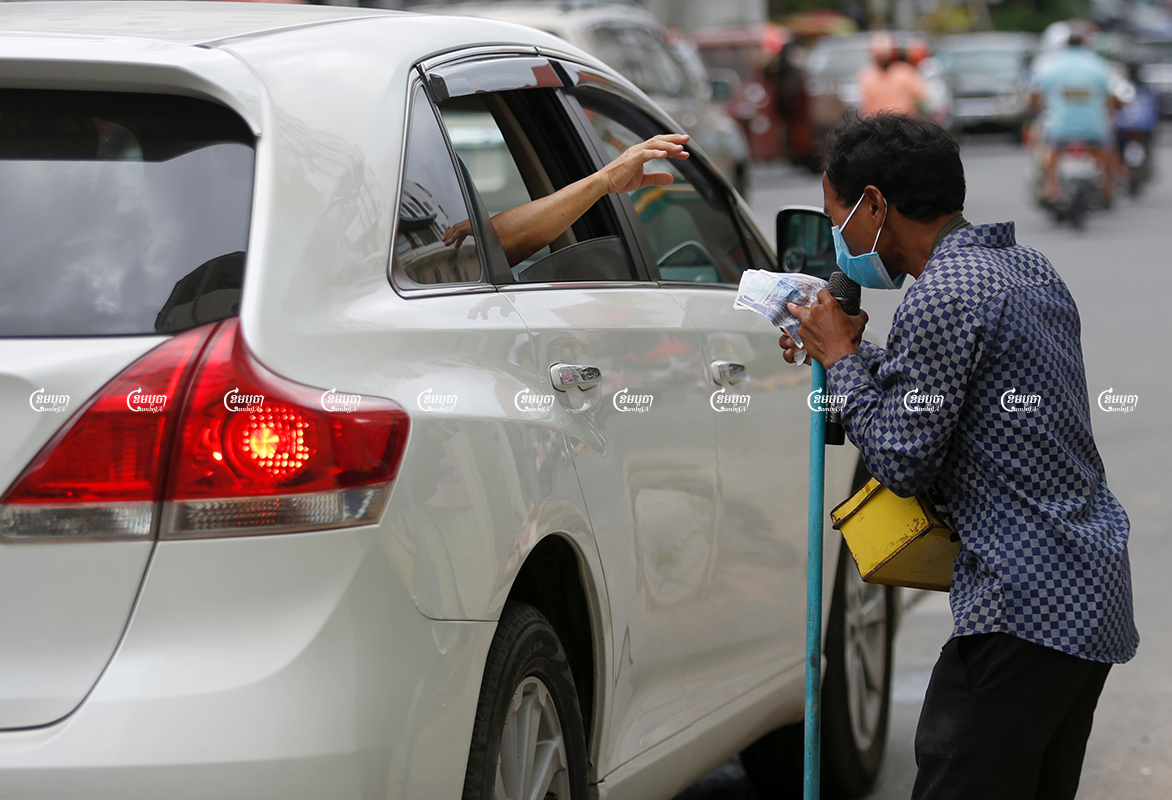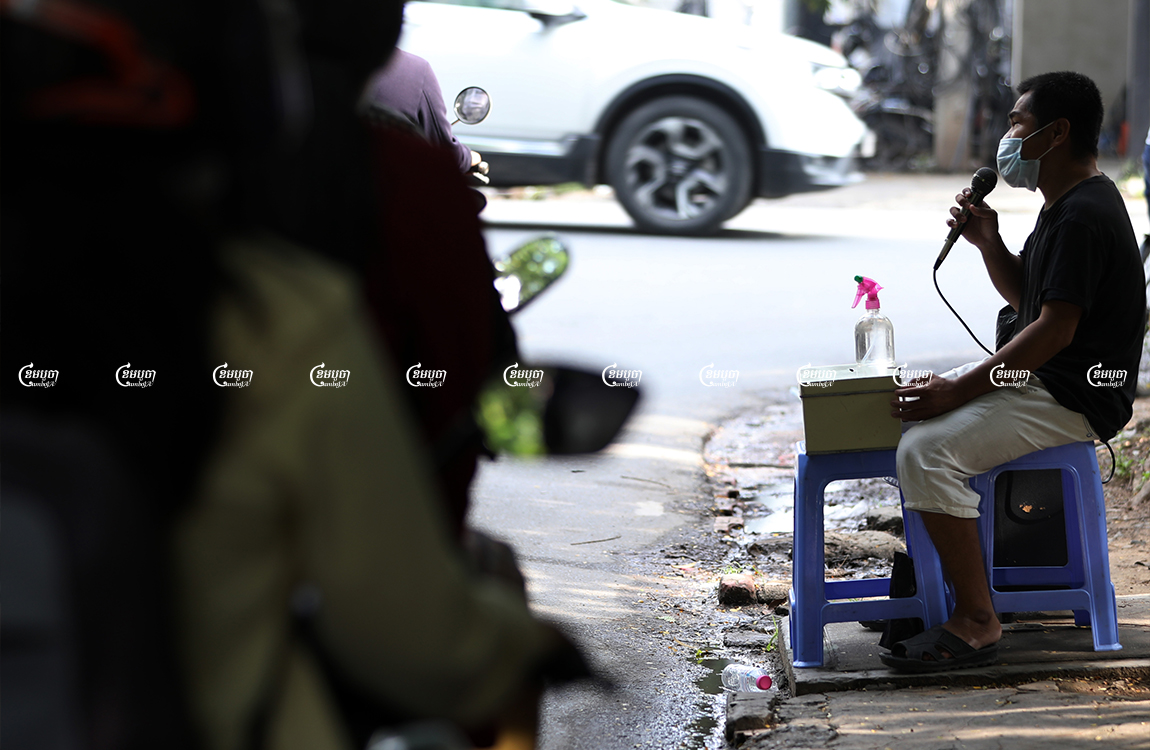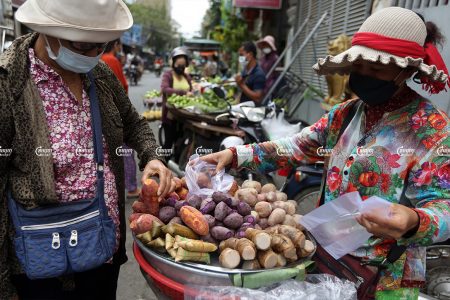Some people with disabilities who earn a living by singing in public said they are struggling amid the pandemic, with fewer would-be customers on the streets.
Rim Sopheaktra, 35, has used a wheelchair since the age of 6. In 2015, she moved to Phnom Penh. There, she joined an association of diabled singers, earning about 30,000 to 40,000 riel per performance in addition to donations from philanthropists.
But unable to meet during the pandemic, the group split up. Sopheaktra invested money in a microphone and speaker, and now sings at Heng Ly Market, but the money she earns is far less than what she needs to live off of and support her child and elderly mother.
“This morning I earned 16,000 riel, just to send to my family, and there is little left after I buy rice for1000 riel and soup for 2000 riel,” Pheaktra said.
“Compared to before, it is difficult to buy enough food and also have some savings,” she added.
Nationwide, about 58,252 people with disabilities have benefited from government programs to provide cash to the poor and vulnerable to COVID-19. Sopheaktra said the state subsidy of $50 per month for rent and water has been helpful, but far from enough, and she fears what will happen if it ends.

Lay Nimol, a blind singer, has been working for years as a member of the Music Association for the Disabled. The group usually sings at weddings and restaurants.
“Before COVID-19 and before we got sick, my husband and I earned 190,000 riel a day [when singing], and I had some money leftover to save.” Nimol said.
“But now we make only 70,000 riel per day, or some days less than 70,000 riel, and after paying rent and travel we have just little left over for daily food,” she said, adding that most of the government subsidy went to covering the cost of food for her baby.
Disabled music associations have grown in number, providing access to musical instruments, a place to sing, and sometimes cash grants covering expenses for 3 to 12 months, depending on an individual’s situation.
Chea Horn, president of the Cambodian Music Association for the Disabled, said his association was established in 1997 with the aim of improving the lives of people with disabilities and demonstrating their musical abilities. During the pandemic, there have been few ways for the group to make money.
Horn said he currently makes money by singing outside of markets, factories, and other crowded areas, now that they no longer have access to the restaurants and halls where they would be hired to sing at.
“Before COVID, we could have some money left over [for other expenditures]. Now we can find work in markets and factories, but we can only earn enough to get food and nothing more.”
Chap To, president of the Samneang Music Association for the Disabled, said that due to the pandemic, more than 644 disabled musicians across Cambodia have been unable to have steady work.
“Every day, their livelihood depends on the financial support of the Cambodian government through the poor ID, some of which receive 120,000 [a month] and some 200,000.” He said.
“They have to save money for two years because going out to do business is risky.”
He said that in spite of the risk, some have continued performing independently on the streets — even though they may face trouble from the authorities.

Toch Channy, Director General of the Technical Department of the Ministry of Social Affairs, said that the government has developed a protection policy for the disabled, the elderly, children and the disabled. But noted that some continue to perform, though they are banned for public safety reasons.
“Those who sing in the market or on public roads are not allowed to sing, but they continue to do so,” said Channy, noting that the government had provided additional cash assistance during the pandemic to the disabled.
He added that the ministry is preparing to collect data on people with disabilities, the elderly and children in order to provide better assistance.
Mak Monika, executive director of Disability Cambodia, said that both those with disabilities and without have struggled amid the pandemic.
“This period is the time when they must find some way to earn a living for survival,” she said.
She added that in order to improve the employment of people with disabilities, no matter where they sing, it is important that stakeholders including the government, organizations, and the private sector facilitate coordination.
According to figures from the Ministry of Social Affairs, there are 6,652 people with disabilities nationwide, including 1557 who are severely disabled.









